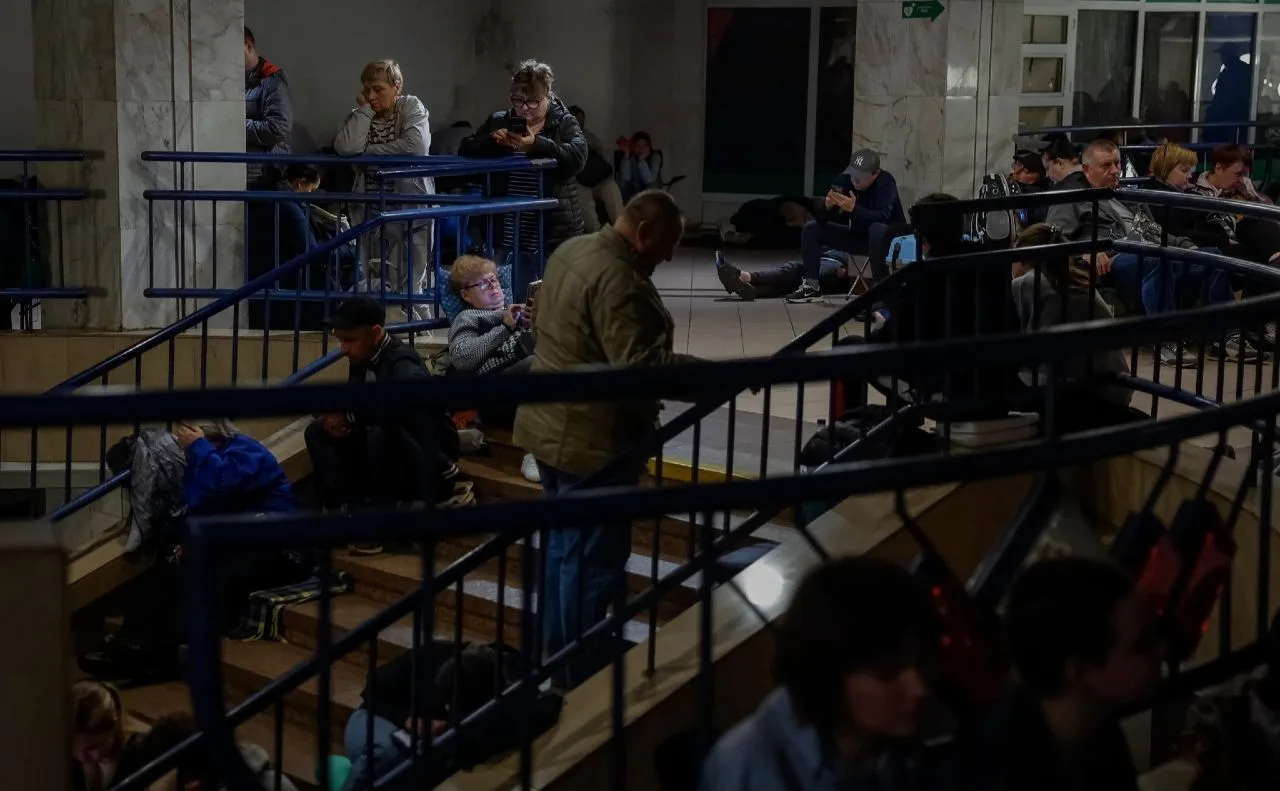During periods of heavy shelling, Ukrainians experience high levels of anxiety, which can lead to panic and dangerous situations in public places. In the metro, shelters and even on the streets, you can see the effects of mass stress, which is not always visible on the outside but affects the psyche — sometimes causing deep trauma.
We asked psychologist Svitlana Beruashvili how to cope with fear during shelling, what the dangers of chronic anxiety are, and what to do if you see someone in panic in a shelter or the metro.
According to the psychologist, anxiety is the body’s natural response to danger. It helps us survive.
‘In a state of chronic anxiety, the body is constantly mobilised. We seem to be waiting for danger without realising it. In this mode, the body quickly becomes exhausted, and psychosomatic symptoms begin to appear — from insomnia to stomach or heart problems,’ says Beruashvili.
Read also: Free psychological help for veterans and their families: how to get support
If there is too much anxiety, it turns into panic, and in a crowd this can cause a so-called ‘domino effect’ when one person triggers a wave of anxiety in everyone around them. This is especially noticeable in enclosed spaces during air raid alerts.
‘We are social beings. When one person starts to panic, it spreads to others. Like at train stations in the early days of the war — crowds in panic trampled people because everyone was thinking only about survival,’ explains Beruashvili.
The psychologist emphasises that it is difficult to cope with anxiety without preparation. Mental stability is formed in everyday life — through habits, reading, videos, and working on oneself. In crisis situations, simple grounding techniques help, such as ‘square’ breathing, where a person focuses on the rhythm: inhale — pause — exhale — pause. But, she stresses, if you don’t work on your mental health systematically, even this technique may not be enough. In particular, she advises practising mindfulness — a meditative technique that helps you become aware of your own state and manage it. This method has a scientific basis and is widely used in modern psychotherapy.
Read also: Platform ‘Towards’. How veterans can find a job
A separate topic is helping others in crisis situations. If you see a person in panic in the subway, it is important not to scare them with sudden actions. Start with simple questions: ‘Can you hear me? Do you know where you are?’ This helps bring the person back to reality. It is also worth offering water, a place to sit, or simply staying nearby.
‘It is very important for the person to feel safe, even through a glance, a voice, or a touch. But not forcefully — if the situation allows,’ she explains.
Svitlana also emphasises that it is important to remember your own safety: in some cases, aggressive behaviour can be part of panic. So it is better to make sure that you are not in danger and only then try to help.
Read also: Ukrainians Have Received Over 15,000 Education Vouchers: Which Specialties Are the Most Popular
Another common problem is chronic sleep deprivation due to stress. People who do not get enough sleep for several days in a row lose concentration, productivity and the ability to respond adequately. This can lead to professional burnout, deterioration of physical health and even dangerous situations in the workplace. In such cases, the psychologist advises employers to be flexible: give the person time to rest and return to a stable sleep pattern.
‘Sleep is a basic need. If it is systematically lacking, a person cannot recover. And without recovery, there is no work, no energy, and no health,’ says Svitlana Beruashvili.
The expert emphasises that now it is important not only to work and survive, but also to learn to support oneself — in everyday life, in shelters, in conversations with loved ones. It is also important to be able to respond to the crisis in others: sometimes a simple ‘I am with you’ can be a point of stabilisation in the midst of panic.
Read also: The psychological state of the military can be monitored through the Prism platform



